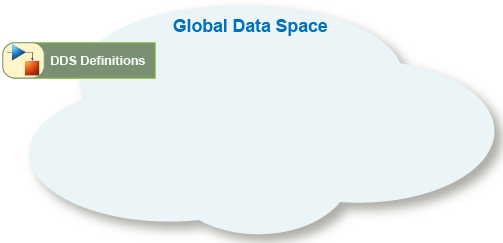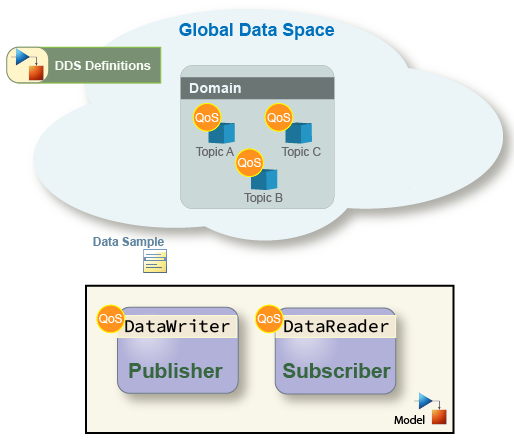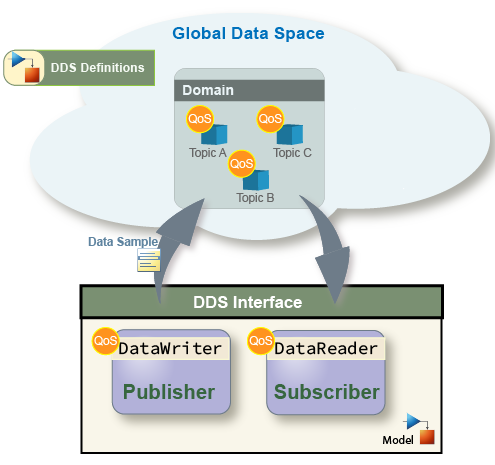How Does DDS Blockset Work?
The DDS Blockset enables you to create DDS applications in Simulink®. If you have an application modeled in Simulink that you would like to be able to use DDS, you can use the DDS Blockset to easily connect to the DDS middleware platform. The DDS Blockset brings DDS concepts into the Simulink environment, models those concepts in your Simulink application, and then enables you to connect your application to DDS.
Conceptual DDS Blockset Workflow
You start with the DDS network and the DDS definitions required for your DDS application.

Create DDS Definitions
You then bring your DDS definitions into the Simulink environment. You can either import or create these definitions. Once the definitions are in the Simulink environment, Domains, Topics, Types, Quality of Service (QoS), and Domain Participant information is available in Simulink.

Model DDS Applications in Simulink
You can now construct or adapt a Simulink model so that it behaves as a Publisher, Subscriber, or an application that is both a Publisher and Subscriber.

You then configure the DDS interface. The DDS interface is the connection point between the application and the DDS network. Specifically, when you use the DDS Blockset, the interface is the Topic and QoS specified on the DataWriters and DataReaders for your application.

Deploy Applications to DDS Network
After you have appropriately modeled your DDS application, build the model and use the executable to deploy your application on the DDS network. Now your DDS application can communicate with other applications by using DDS.

The DDS Blockset provides out-of-the-box support for the DDS vendors RTI and eProsima.
DDS Blockset Workflow
To use the DDS Blockset tools to complete these conceptual steps:
Use the DDS Application Quick Start to import or create DDS Definitions.
View or edit DDS definitions in the DDS Dictionary.
Use DDS Blocks to model a Publisher or Subscriber.
Use the Code Mappings editor to configure the DDS interface (the Topic and QoS properties of DataReaders and DataWriters).
Build the application executable to deploy the application on DDS network.